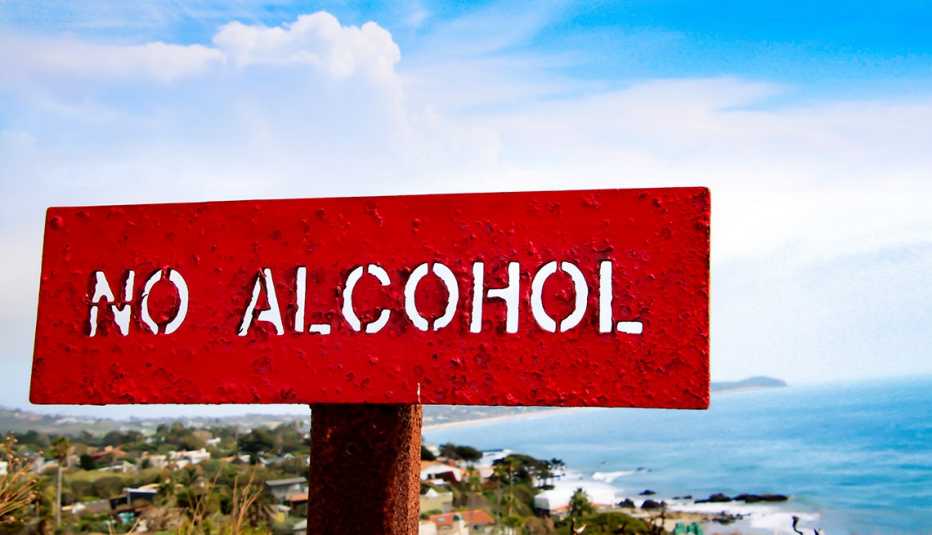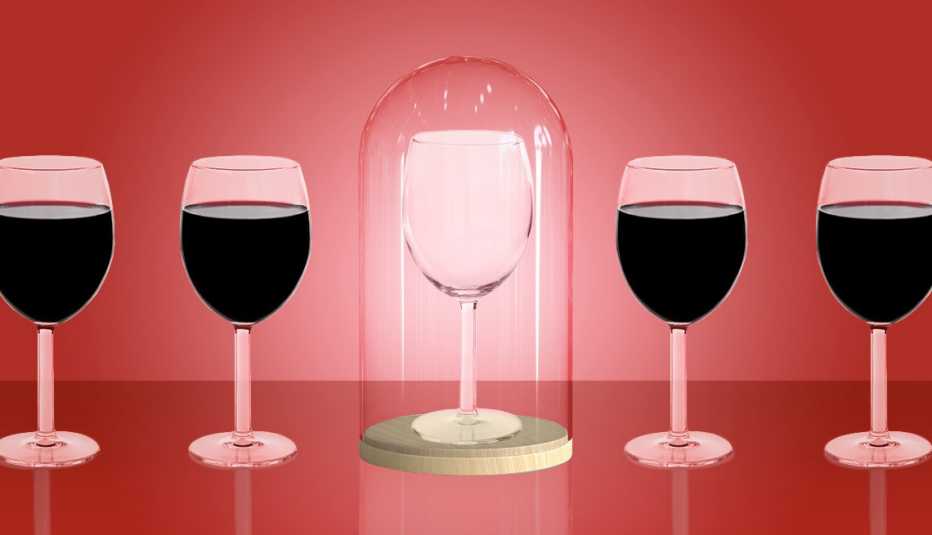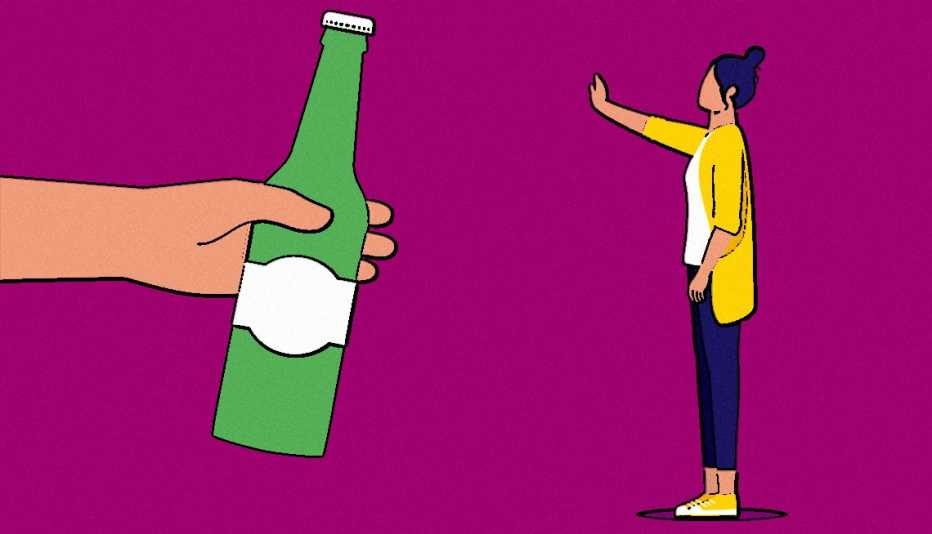AARP Hearing Center
“I don’t like the way alcohol makes me feel anymore,” says Ellen Albertson, a 61-year-old psychologist and registered dietitian in North Hero, Vermont. She’s currently in breast cancer remission and cutting back on vices that could put her at future risk. In addition, she wants to work more toward practicing what she preaches as a health and wellness professional. While drinking used to be fun, Albertson has noticed that she isn’t finding it worth the side effects. “It doesn’t do anything for me now other than make me feel really sluggish and tired,” she explains. Thus, Albertson is limiting her drinks to just a few a month when she heads out with her friends or fiancé. “I’d like to be totally sober, eventually. That’s the goal,” she explains.
Several years ago, Curtis Matthews, 56, decided to cut back on his drinking. “I used to be a heavy social drinker and would often consume multiple beers or hard drinks in one sitting,” he reveals. After overdoing it one Christmas, he experienced a terrible hangover and vowed to never drink like that again. Since then, he’s averaged around one drink a month. “I’ve noticed significant improvements in my overall health and happiness,” says Matthews. “I used to rely on alcohol to get a buzz, but now I can enjoy social gatherings without feeling the need to drink excessively.”
And Violette de Ayala, 51, spent her 2023 limiting her relationship with alcohol. “Now when I go out to eat at a restaurant, I order a bottle of sparkling water as my treat versus a glass of wine,” she says. At social events, she asks for her bubbly H₂O with a slice of lime, which helps her to blend in as it resembles a gin and tonic. “At the start, everyone questioned my lack of alcohol intake, but I feel that it’s becoming more of the norm to opt for more healthy drink options,” says Ayala. She still has an occasional glass of wine, but says the Dry January movement helped her to kick the habit and dodge the social pressures.
What is sober curiosity?
These are just a few examples of the many people who consider themselves to be sober curious, a movement toward developing a healthier relationship with alcohol by drinking more intentionally, cutting back and maybe even giving up the booze altogether — and a trend that has been growing in recent years. In 2013, Alcohol Change UK created the Dry January movement, in which people pledged to give up drinking for the month. Since then, mocktails and nonalcoholic drinks have surged in popularity.
In fact, Nielsen reports that between August 2021 and August 2022, nonalcoholic drink sales totaled $395 million in the United States, growing 20.6 percent from the previous year. Sales of these nonalcoholic beverages continued to soar in 2023. People who turned to alcohol to cope during the pandemic are now looking to prioritize healthier habits. And recent studies on the negative health effects of alcohol have also spurred the movement. A 2022 study that challenged the idea that red wine is healthy for your heart found that even small amounts of alcohol can lead to increased cardiovascular risk and the World Health Organization made a statement that “when it comes to alcohol consumption, there is no safe amount that does not affect health.”
How to be sober curious
Finding yourself feeling sober curious? Here are 10 expert-backed tips on how to tiptoe in.
1. Just get started
“I would say the very first thing people should do is start to explore it,” says Greg Hobelmann, M.D., co-CEO of Ashley Addiction Treatment. Start gathering information wherever you can, whether that’s reading an article on the sober curious movement, doing a web search or looking at things on YouTube. The more information you read on the benefits of cutting back and tips on how other people are doing it, the more motivated you will likely become to dive in.










































































